Since the beginning of the U.S-led war on terror, a handful of Muslim-majority states have begun to brand themselves on the international stage as a source of “moderate Islam.” A recent report by Peter Mandaville and Shadi Hamid observes that states’ uses of Islam in foreign policy are extensions of domestic religious-political cultures.
Algeria and cases like it, however, reveal that this relationship might also be dialectic: Where states use domestic religious orientations to craft their foreign policy posture, the political-religious dynamics that result project back on to domestic religious actors’ considerations. Algeria’s regional role as an exporter of “moderate Islam” has shaped how domestic Islamists position themselves within the political-cultural milieu.
A corollary of this phenomenon is that “moderation” has become even more resistant to precise definition, and is instead subject to complex political contestations. It might well be analogous to the discursive role that the concept of liberty, or freedom, plays in the United States: It is a lynchpin of political legitimacy, even while rival political camps define it in diametric opposition and make exclusivist claims to it. “Moderate” has become a contested social label from which religious actors are loath to be excluded. Such a lens qualifies explanations of Islamist moderation as chiefly a result of doctrine, and challenges those that analyze it as a single detectable position or objectively traceable process.
“Moderate Algerian Islam” in foreign and domestic policy
The global war on terror began in 2001, incidentally as Algeria’s civil conflict wound down. Over the course of this decade-long war between the Algerian army and Islamist insurgent groups, the state sought Western allies’ moral and diplomatic support for its narrative on the conflict (namely, who was its hero, and who its villain). This was facilitated by Algeria’s enlistment in the U.S.-led counterterror efforts. Its own violent period was presented as part of the “war on terror” and taken up as a shared interest.
Seeking to supplement their military efforts, Western powers and their allies enlisted perceived Islamic moderates to combat extremist ideology. As part of its own response, Algeria touted its religious training for moderate clerics and preachers and publicized its Ministry of Religious Affairs’ use of female guides (murshidat) in spreading moderate interpretations to at-risk youth and their families. Algeria also ramped up intelligence sharing and began participating in the U.S.-led Flintlock joint military exercises. These efforts allowed Algeria to portray itself as a reliable ally in global security.
State narratives on terrorism and the antidote of “moderate Algerian Islam” were also directed at domestic audiences as the state sought to rebuild public trust after the civil war. Political and economic grievances that mounted throughout the 1980s had given rise to the Islamic Salvation Front (FIS), whose cancelled electoral victory sparked the conflict. The FIS, during its campaign, attributed the country’s widespread hardship, in part, to the state’s betrayal of the Islamic ideals of the War of Independence, thus claiming to be the true progeny of the anti-colonial revolution.
Thus, in addition to military measures, the state also worked to defeat the FIS’ ideas and brand, mobilizing collective trauma to cast “the Islamists” (a shorthand used to conflate the FIS and the insurgency) as the sole aggressors. Paralleling its foreign policy position, the conflict was recast to Algerian citizens as having resulted from Islamists’ lack of moderation. The ambiguity of this concept, and the imprecision with which it was invoked, allowed the state to conflate any sort of anti-state contention with religious or ideological radicalism. In what is now a region-wide phenomenon, moderation became a rhetorical tool to wield against opposition and consolidate state power.
Religious and revolutionary history was marshalled by the state to craft an “Algerian Islam,” of which the state reasserted itself as the sole legitimate arbiter. This brand of Islam was billed to domestic audiences as “the Islam bequeathed by [Algeria’s] ancestors,” to which the country needed to “return.” Official discourses contended that the immoderation of the Islamist insurgents was a result of their “importation” of a “foreign” Islam that had no basis in Algerian history or culture. The state thus promoted religious localism, reviving Sufi orders and maraboutism (reverence and consultation of holy men) that would, in theory, spread moderation and inoculate against radical ideology chiefly by virtue of being “homegrown” and “authentically Algerian” religious institutions.
Exactly which “foreign” Islamic currents had stoked the civil conflict was often unclear; but the greater attention paid by the West to Saudi Arabia’s export of Wahhabism since the rise of al-Qaida and ISIS has validated Maghreb (i.e. Northwest African) regimes’ fear-mongering about religious “Orientalism” (used to conflate any religious influence from the Arab east).
Moderation, and its precondition of religious localism, by now had also become larger priorities in Western circles in their continued quest for regional actors deserving of material and symbolic support. As the term’s use evolved over time, a Muslim-majority state’s designation as “moderate” became more about its reliability in helping allies meet foreign policy goals than a measure of its ideological centrism, political liberalism, or any of the other oft-cited yet inadequate metrics for understanding Islam and politics. The stamp of approval in effect endorsed and emboldened authoritarian policing of domestic religious spheres and efforts to monopolize religion.
Islamist contenders operating in authoritarian contexts have increasingly come to understand that the structures of political opportunity they face at home are impacted by how they are framed abroad. Where Islam is either the “problem” or the “solution” in policy discourses, Islamists recognize that where they get placed within this binary can either boost their political longevity or justify their elimination from the national body politic.
Moderate Algerian Islamists
In April 2016, the Algerian branch of the Muslim Brotherhood (Movement for a Society of Peace, or MSP) hosted a transregional conference called the Maghrebi Forum for Moderate and Centrist Parties (al-multaqa al-magharibya lil-ahzab al-wasaṭiyya), which I was able to attend, living in Algiers. MSP President Abderrazak Mokri expressed in his opening speech that Algeria’s violent civil war had renewed the importance of moderation to the MSP. Addressing his Maghrebi counterparts, he emphasized that their uniting factor was their commitment to moderate values and Islamic principles.
Since the dawn of the conflict, the MSP has asserted itself as a moderate alternative to the FIS, moved by the optics of the latter’s demise. In so doing, it invoked the values of moderation that have been constructed in the Algerian space: non-violence, incrementalism, centrism (wasaṭiyya), and especially, religious localism and Algerian nationalism. It may be tempting to try to pinpoint whether Islamists’ use of these concepts are animated by movement doctrine, or simply by political expediency; but it is rather that the MSP’s cultivation of this doctrine is itself inextricable from its experience within its domestic social context, which includes politics.
In the MSP’s early days, founding leaders openly intended to establish the group as the Algerian branch of the international Muslim Brotherhood. Today however, the group oscillates between relaxing and altogether abandoning language that linked it to the flagship Brotherhood in Egypt. In fact, during the conference, speakers refrained from explicitly acknowledging respective links to the Muslim Brotherhood, instead highlighting “ideological closeness,” “common roots,” and “shared orientations” as their binding feature. This is because the “transnationalism” and “Arab Easternness” that have become implicit to the Brotherhood label in the wider Maghreb contravened the religious localism required for “moderate Algerian Islam.”
Another MSP leader emphasized that transregional coordination should respect each party’s “national specificities” and avoid subversive tones regarding their respective political regimes. This represented another enactment of moderation understood as political accomodationism and a willingness to align with the status quo.
Regional contrasts and commonalities
“Moderate” religious branding is not only a way for states to position themselves strategically vis-à-vis Western powers, but also to assert soft-power, even hegemony, over smaller “satellite” states. Algeria, for its part, has long been a military behemoth in the Maghreb and Sahel. It has, however, doubled down on its religious-cultural diplomacy in the region since rival Morocco began in recent years to make its own soft-power overtures to their neighbors. Both states deploy the “moderate Islam” of their respective brands, which are remarkably similar in many respects. Both draw upon the Maliki school of jurisprudence and shared trans-regional Sufi networks, both as conduits of this branded moderation and to establish spiritual-cultural affinity with counterparts in the Sahel. They also boast similar regional religious training and oversight efforts.
These similarities make the oft-cited Moroccan case a fascinating point of comparison to Algeria. It is usually believed that monarchies like Morocco have an advantage over republican counterparts like Algeria in monopolizing spiritual legitimacy and shaping the national religious fabric due to their supposedly divine ordinance as descendants of the Prophet. To be sure, the Moroccan king’s designation as the “Commander of the Faithful” does give him an explicitly spiritual mandate that is often less contested than that of Algeria’s “elected” head of state, as we are now seeing. (Indeed, the ongoing protests in Algeria against a fifth term for the ailing president saw the slogans, “Algeria has no king,” and “we are a republic not a monarchy.”) In fact, Morocco’s foreign policy establishment, religious institutions, and even its military function in tandem to uphold the monarchy and the logic of its religious legitimacy, while the more fragmented Algerian state has struggled at various points to concentrate religious authority(or any authority for that matter) in a single source.
However, overreliance on the idea of monarchic symbolic power can elide the ways in which republics also rely on national mythologies to construct religious authority and to engender public discipline and fealty. In Algeria, the primacy of Islam in the concepts of “Algerianness,” citizenship, and nationhood has historical antecedents in anti-colonial narratives. The enduring mythologies of the indivisibility of Islam and the FLN-led (National Liberation Front) revolution have been the basis for the state’s similar “dynastic” claim to the national religion and its underlying moral codes and spiritual vocabulary. That Algeria’s current protestors are reclaiming this language—of the anti-colonial mujāhidīn and the sacrifice of the shuhadāʾ (martyrs)—and its ownership by the state in their rejection of the current regime is a testament to the power and longevity of such narratives. It is thus likely that even in the event of a political transition, subsequent governments will rely on it too. Similarly, in the contrasting Moroccan case, the palace’s religious credentials are not entirely insulated from religious dissent (as below examples will show), nor is the monarch’s political legitimacy entirely uncontested.
Even so, notwithstanding some differences stemming from regime type, the similarities in how both Morocco and Algeria’s international narratives are taken up in domestic religious and political debates are noteworthy. Morocco has undertaken aggressive lobbying and publicity efforts which have won its brand favor in international circles. As a result of its efforts to become an indispensable ally in the war on terror, it garnered designation as a Major Non-NATO Ally in 2004. Like Algeria, Morocco has sought to manage domestic religious currents and secure the state’s place at their center. Morocco’s Islamists, like their Algerian counterparts, are thus aware of the ways in which their image in U.S. and European policy circles shape their political opportunity. Moderation as a diplomatic position has become a social imperative in Morocco that organizes and regulates Islamists’ doctrine, platform, and behavior, as it has in Algeria.
Morocco’s two leading Islamist groups, the Justice and Development Party (PJD) and its rival Adl wal Ihsan (AWI), both cite moderation as a defining tenet—but often in mutually exclusive terms. As a frequently repressed movement AWI does not disclose its numbers but is considered the country’s largest Islamist movement. It refuses participation in Morocco’s formal political processes, as it rejects both the state’s terms of engagement and the king’s charge as Commander of the Faithful. Because AWI evokes Islam and its practice in a manner that contests the monarch’s religious bona fides, it claims moderation through the prism of interpersonal conduct, brotherly love (suhba/ukhuwwa), non-violence, centrist exegesis (wasaṭiyya), and perhaps most tellingly, through assertions of being a “homegrown” movement rooted in indigenous Sufi practice. Interestingly, what it contests here are not the notions underlying “moderate Moroccan Islam” but whether the monarchy is its best arbiter. In stark contrast, the highly institutionalized PJD pledges loyalty to the palace and acknowledges its religious primacy. It defines its moderation not chiefly through doctrinal roots (some of its preceding iterations had violent orientations), but through its compromise, participationism, and narratives of political “evolution.” Indeed, the PJD often calls out AWI’s rejection of the monarchic system as an indication of its latent extremism, while AWI leaders often fixate on the rival PJD’s “non-Moroccan-ness” and transnationalism.
Among Morocco’s Islamist actors, the PJD is most similar to the Algerian MSP. Its accommodationist position vis-à-vis the monarch parallels the MSP’s deference to the Algerian regime; both have highlighted their grounding in national history and local religion even as they sustain some affinity and linkage to the transnational Muslim Brotherhood.
Ultimately, in these cases, the ways and reasons Islamists lay claim to “centrism” and “moderation” are inextricable from how the state has positioned itself on the world stage. This shows that while the deployment of Islam in statecraft reflects internal religious dynamics, those religious dynamics are also shaped by statecraft in turn.
The Brookings Institution is committed to quality, independence, and impact.
We are supported by a diverse array of funders. In line with our values and policies, each Brookings publication represents the sole views of its author(s).

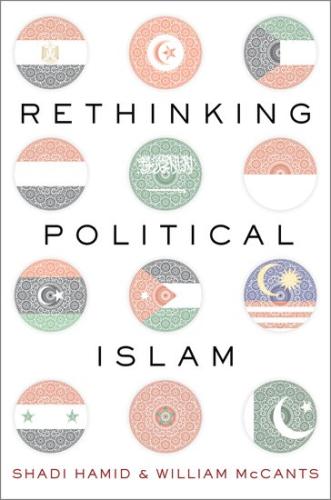
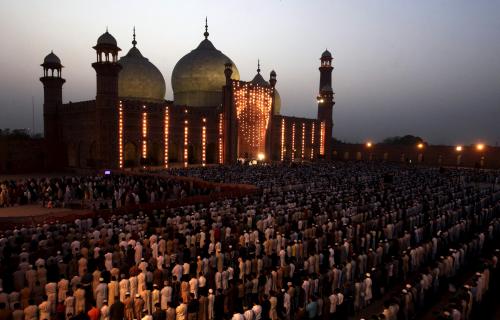
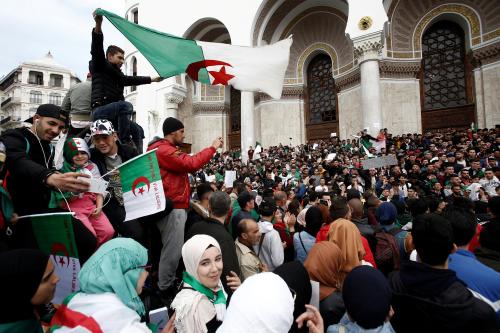
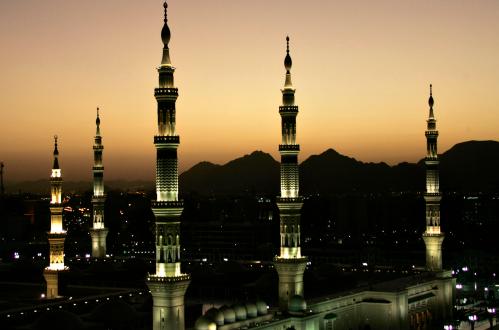


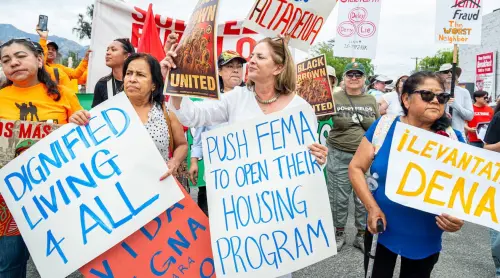
Commentary
Moderate Islam in the Maghreb: How US foreign policy shapes Islamist contention
April 4, 2019